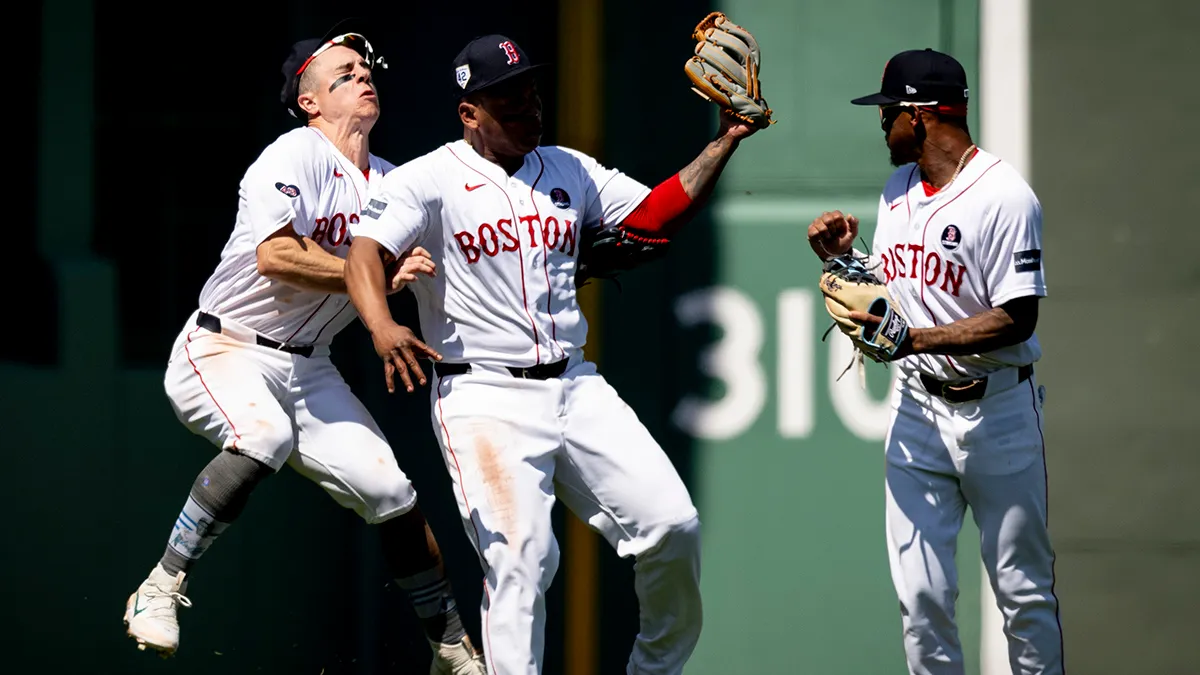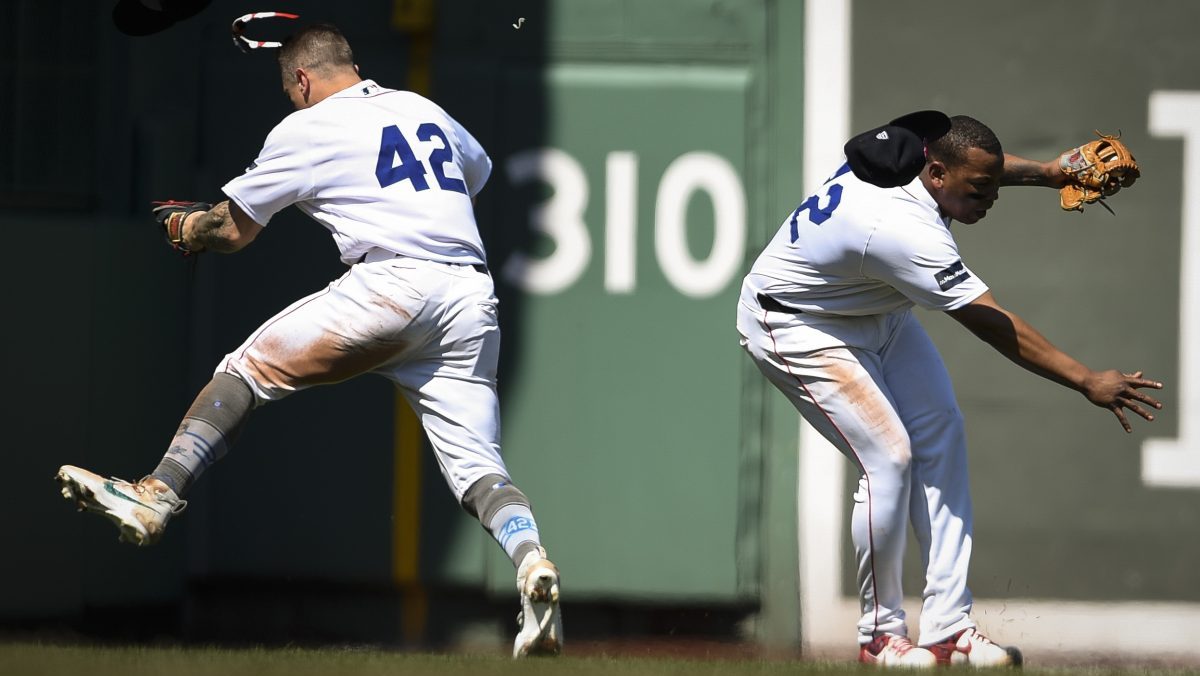
By Sean McAdam
CSNNE.com Red Sox InsiderFollow @sean_mcadam
CHICAGO -- It was, in the end, all about pitching; starting pitching in particular.
While the Red Sox a week ago thought they were in position to land Carlos Beltran in a deal and later dabbled on some relievers, the Sox spent almost all of their focus in the week leading up to Sunday's deadline in the market for starters.
"We were in on basically every available starter," said general manager Theo Epstein in a conference call with reporters. "We think we had a clear need for a staring pitcher and we would not have been satisfied if we let the deadline past without getting one."
On Saturday night, in fact, the team was prepared to make two separate deals for starters.
They had an agreement in place to send catching prospect Tim Federowicz and another prospect to Los Angeles for pitcher Hiroki Kuroda.
Some minor haggling remained on a third prospect, with the Red Sox privately resigned to including that player if it meant the deal would get done.
The whole trade got scuttled, however, when the Dodgers approached Kuroda to see if he would willingly waive his no-trade clause and Kuroda refused.
Boston Red Sox
That sent the Red Sox in the direction of Oakland's Rich Harden, and hours later they had a deal in place for him, too -- Lars Anderson and a choice of one of three players to be named later.
Two of the three players to be named later were considered top second tier prospects.
Then the Red Sox got Harden's medical reports and were scared off by what they saw. Attempting to get some protection from giving up a good prospect as one of the players to be named, the Sox asked the A's for a reworked deal based on Harden's availability the remainder of the season.
If Harden made a certain number of regular season starts over the final two months and was on the postseason roster, the A's would get their choice from the original list. If he failed to meet that standard, the list would be reworked for lesser players.
When the A's balked, the Red Sox pulled out of the deal.
That sent them back to the Seattle Mariners. It had been the Red Sox' plan to get another pitcher before going back to talk about Bedard -- both to provide strength in numbers and also give them some leverage in talks with the Mariners, whom had asked for two top prospects earlier in the week.
Having scouted him Friday night at Safeco Field in his return from a knee injury that sidelined him for a month, the Sox weren't concerned about his poor outing.
Nor were they of the belief that Bedard had sabotaged his trade value by pitching poorly, thus ensuring he would remain in Seattle for the remainder of the season.
The weekend before, when the Mariners were at Fenway, the Sox had some of their talent evaluators watch him pitch a simulated game. When Bedard noticed the Red Sox scouting him, he picked up his intensity and his stuff was immediately improved.
Any question about his willingness to pitch in Boston had been answered.
Then came the hard part. The Mariners were intent on getting two athletic outfielders as part of their return and the Sox didn't want to provide more than one from within.
Instead, using the talks on Kuroda as a base for restarting discussions with the Dodgers, the Sox agreed to send three prospects to Los Angeles -- Federowicz and pitchers Stephen Fife and Juan Rodriguez -- for minor-league outfielder Trayvon Robinson. They then packaged Robinsion with their own outfielder, Chih-Hsien Chiang, to get Bedard.
"It wasn't clear that we were going to get anything done until the last minute again," said Epstein. "We're really glad to not get just any starting pitcher, but to get a pitcher capable of shutting down any lineup."
There are two main concerns about Bedard - one is his health; the other is his suitability for a market such as Boston.
In regard to protecting his health, the Sox may be able to buy him some additional bounce-back time by staying with a six-man rotation for the next few weeks.
They don't intend -- or expect -- to see his best stuff right away. The goal is to have him close to 100 percent on Sept, 1, not Aug. 1.
"The first step," said Epstein, "is to get to know him better. We'll all sit down and listen to what makes him tick. He knows his routine, and his between-start preparation better and how his arm responds better than anybody else does.
"So we'll sit down and listen and do what we can to support him and put him in a position for him to be as healthy as he can be and as effective as he can be."
As for Bedard fitting into Boston, the commitment is a short one. In an interview with the Boston Herald last week, Jim Duquette, who was general manager of the Orioles when Bedard was in Baltimore, openly questioned whether Bedard had the makeup -- or the willingness -- to pitch in a big-market setting.
"We're very comfortable with adding Erik to the ballclub," said Epstein. "I think he's a really good fit for this club. I think he's going to get along with his teammates. He's very competitive when he's on the mound. Maybe he lets his arm do his talking for him, which is fine with us. I think based on what we know about him, we think he's going to fit in well with his teammates and enjoy being a Red Sox in the middle of a pennant race.
"There's a lot of labels in baseball. Obviously, every club does its research and you do background information on players. But I've also found in this game that there can be labels that aren't always accurate. Until you're in the clubhouse with a player, you don't really know and you can't always project a player from one situation into another."
And in the end, given the circuitous nature of the talks and what the Sox went through to get him, they don't so much care whether Bedard talks a good game as long as throws a few.
Sean McAdam can be reached at smcadam@comcastsportsnet.com. Follow Sean on Twitter at http:twitter.comsean_mcadam.


